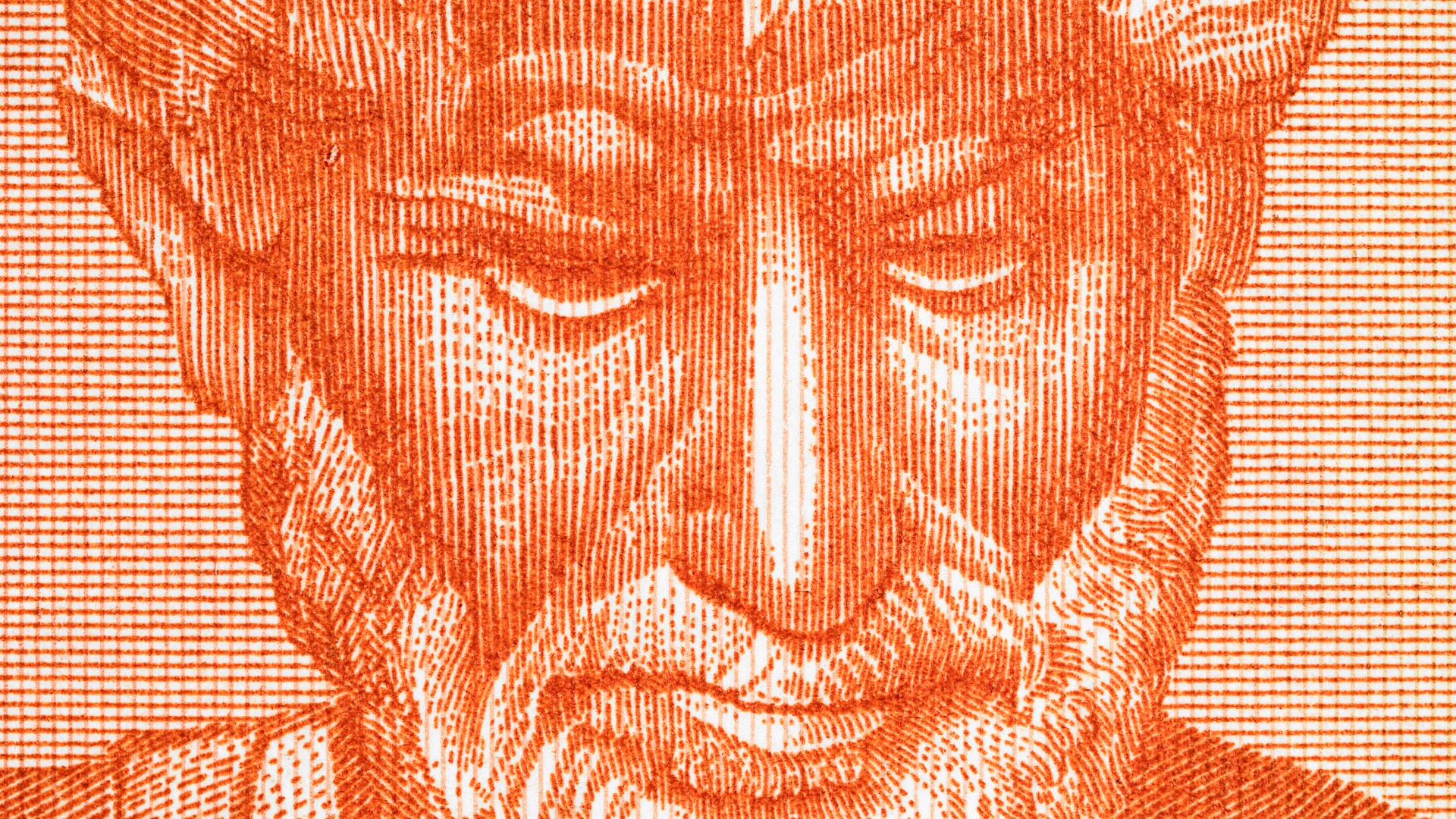10 excerpts from Marcus Aurelius’ “Meditations” to unlock your inner Stoic

(Getty Images)
- Meditations is a collection of the philosophical ideas of the Roman Emperor Marcus Aurelius.
- Written as a series of notes to himself, the book is much more readable than the dry philosophy most people are used to.
- The advice he gave to himself 2,000 years ago is increasingly applicable in our hectic, stressed-out lives.
Stoicism is an increasingly popular philosophy for our overworked, anxious world. Learning the key points can be difficult however, as many stoic philosophers write densely or give good advice in the form of morbid tidbits like, “If you kiss your child, or your wife, say that you only kiss things which are human, and thus you will not be disturbed if either of them dies.”
Ouch.
This is where Marcus Aurelius comes in. A Roman emperor, he was given a Stoic education in his youth, wrote extensive notes to himself based on the philosophy, and practiced what he preached to such an extent that he is widely regarded as the best example of a philosopher king.
In his book Meditations, Aurelius writes a series of notes to himself designed to remind himself of key stoic teachings that may come in handy when trying to rule the world. Written in war camps during campaigns against barbarian hordes, it is infinitely more readable than the pure philosophy of other great stoic thinkers. With many aphorisms that are short and snappy and others that relate to issues we’ve all faced, the wisdom presented here is as understandable as it is practical.
Here are 10 of the best ideas from Meditations, what they mean, and how you can use them to be a bit more philosophical as you deal with life’s problems.
If you apply yourself to the task before you, following the right reason seriously, vigorously, calmly, without allowing anything else to distract you, but keeping your divine part pure, as if you might be bound to give it back immediately; if you hold this, expecting nothing, fearing nothing, but satisfied with your present activities according to nature, and with heroic truth in every word and sound which you utter, you will live happily. And there is no man who is able to prevent this.
The way to happiness, according to Stoics, is keeping up a proper mental state and following the dictates of reason. A quick way to do this is to focus on the moment at hand and accepting whatever you cannot control while reacting to those things properly. This can lead to a lifetime of tranquility for those who try hard enough.
Within 10 days you will seem a God to those to whom you are now a beast and an ape, if you will return to your principals and the worship of reason.
One of the goals of any good Stoic is to act in accordance with reason, that element of the divine that we all possess. Since reason is seen as the path to happiness, virtue, and living well, sticking to it consistently can be expected to have tremendous payoffs.
If he is a stranger to the universe who does not know what is in it, no less is he a stranger who does not know what is going on in it.
Stoicism doesn’t treat humans as solitary creatures, despite the urging it gives us to ignore the opinions of others. The Stoics know people are social animals and mandate a healthy level of social and civic participation for everyone.
Failure to observe what is in the mind of another has seldom made a man unhappy; but those who do not observe the movements of their own minds must of necessity be unhappy.
How other people think is outside of our control. Stoicism teaches us that we should, therefore, try to be indifferent to it. However, the workings of our mind are what makes us happy and unhappy and should receive a great deal of our attention.
Are you angry with him whose armpits stink? Are you angry with him whose mouth smells foul? What good will this anger do you? He has such a mouth, he has such armpits: it is necessary that such an emanation must come from such things — but the man has reason, it will be said, and he is able, if he takes pains, to discover wherein he offends. Well then, and you, too, have reason: by your rational faculty stir up his rational faculty; show him his error, admonish him. For if he listens, you will cure him, and there is no need of anger, the stuff of tragic actors and whores.
Even though humans have access to divine reason, sometimes we still make mistakes. The best response to this isn’t anger, but rather to appeal to that reason in search of a solution. This Stoic wisdom that we can choose to bypass a negative emotional reaction and use reason instead is part of the basis for Cognitive Behavioral Therapy.
That which is not good for the swarm is not good for the bee either.
We live as individuals in societies. If society is harmed, how can we not also be harmed? Epictetus, a philosopher who influenced Marcus Aurelius, thought it was vital that we do our duties towards others and not merely withdraw into contemplation and isolation. A good thing to remember when you are the king of the known world.
Do not act as if you will live 10,000 years. Death hangs over you. While you live, while it is in your power, be good.
The Stoic philosophers understood that most people ignore the fact that they are going to die someday. While it is easy to understand why people do this, they saw this as a detriment to our ability to live life now. By coming to grips with the fact of death, we can make better use of life.
Is any man afraid of change? What can take place without change? What then is more pleasing or suitable to the universal nature? And can you take a hot bath unless the wood for the fire undergoes a change? And can you be nourished unless the good undergoes a change? And can anything else that is useful be accomplished without change? Do you not see then that for yourself also to change is just the same, and equally necessary for the universal nature?
The Stoic view of the cosmos leans heavily on the idea of constant change as argued by Heraclitus. Everything in the universe is always in flux. Since this is part of nature, it is nothing to be hung up about. While change can be difficult for us, the Stoic thinkers encourage us to embrace it.
A wrongdoer is often a man who has left something undone, not always one who has done something.
Just because you didn’t cause a problem doesn’t mean you’re in the clear. A dedication to the good often implies the need to do good, not merely the duty to avoid doing wrong. It is always nice when kings remember this.
Begin the morning by saying to yourself, ‘I shall meet with the busybody, the ungrateful, arrogant, deceitful, envious, unsocial.’ All these things happen to them by reason of their ignorance of what is good and evil. But I, who have seen the nature of the good that it is beautiful, and of the bad that it is ugly, and the nature of him who does wrong, that it is akin to me, not only of the same blood or seed, but that it I participates in the same intelligence and the same portion of the divinity, I can neither be injured by any of them, for no one can fix on me what is ugly. Nor can I be angry with my kinsman, nor hate him. For we are made for cooperation, like feet, like hands, like eyelids, like the rows of the upper and lower teeth. To act against one another then is contrary to nature and it is acting against one another to be vexed and turned away.
All the principle teachings of Stoicism expressed in one paragraph. Bad things will happen to you, it’s life. However, you have the power to overcome these events through reason and the understanding that you can only really be harmed by your own mental processes. All people are similar and should be treated as such. Virtue is to act in accordance with nature, that which is contrary to nature is irrational and causes suffering.





